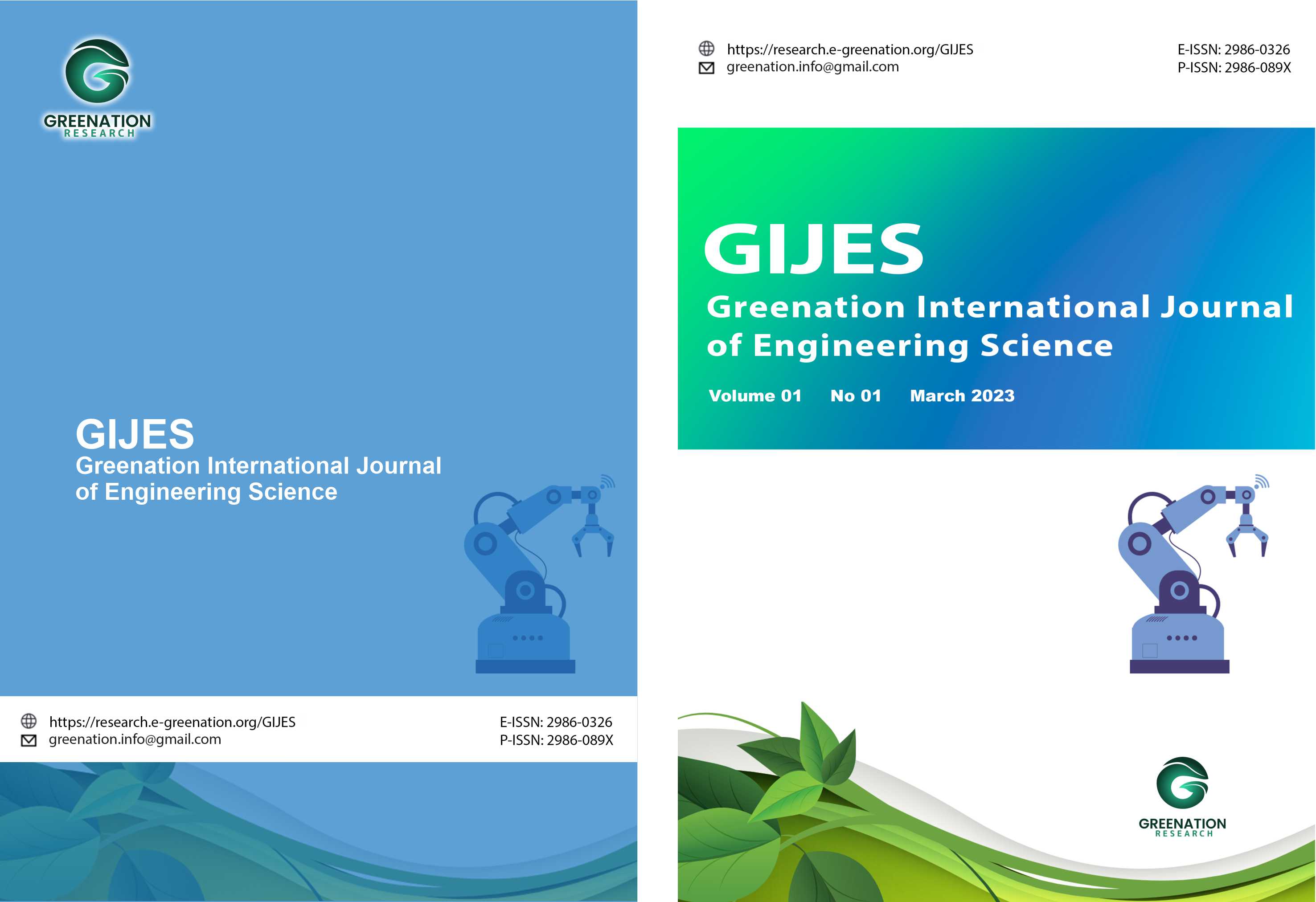The Influence of Service Quality on Student Satisfaction and Implications for Loyalty Lessee Loyalty (Study on Learners at Vocational High School (SMK) Negeri 1 Soreang)
DOI:
https://doi.org/10.38035/gijes.v2i3.257Keywords:
Service Quality, Student Satisfaction, Student LoyaltyAbstract
This study aims to provide an overview of service quality, student satisfaction, and student loyalty among students at Vocational High School (SMK) Negeri 1 Soreang. Additionally, it seeks to determine the direct and indirect effects of service quality on student satisfaction and loyalty, as well as analyze the impact of student satisfaction on student loyalty. The research method used in this study is a causal associative approach, which examines the relationship between variables that have a causal connection. The sampling technique applied is non-probability sampling, specifically purposive sampling. The unit of analysis is the students of SMKN 1 Soreang, Bandung Regency, with a sample size of 56 students. The results indicate that service quality, student satisfaction, and student loyalty at SMK Negeri 1 Soreang are in good, satisfactory, and loyal conditions, respectively. Moreover, service quality has a positive and significant effect on both student satisfaction and loyalty. Similarly, student satisfaction positively and significantly influences student loyalty. Since both service quality and student satisfaction impact loyalty, it was found that student satisfaction has a more dominant influence. Therefore, enhancing student satisfaction should be the top priority in improving student loyalty. It is recommended that SMKN 1 Soreang focuses on increasing the sense of satisfaction among its students by delivering high-quality services, thereby fostering greater loyalty to the school.
References
Alma, Buchari. 2008. Pemasaran Stratejik Jasa Pendidikan. Cetakan Kelima. Bandung: Alfabeta.
Aryani, Dwi., Rosinta, Febrina. 2010. Pengaruh Kualitas Layanan Terhadap Kepuasan Pelanggan dalam Membentuk Loyalitas Pelanggan. Jurnal Ilmu Administrasi dan Organisasi. Vol. 17 No. 2. Hlm 114-126.
Bafadal, Ibrahim. 2003. Manajemen Peningkatan Mutu Sekolah Dasar, Dari Sentralisasi Menuju Desentralisasi. Jakarta: Bumi Aksara.
Beerli, A., Martin J.B., Quantine, A. 2004. A Model ofCustomerLoyalty in The Retail BankingMarket. EuropeanJournalofMarketing, 68.
Caruana, A. 2002. Service Loyalty The EffectofSetviceQualityand The MediatingRoleofCustomerSatisfaction. EuropeanJournalofMarketing, 36.
Cornelia, dkk. 2008. Analisis Pengaruh Kualitas Layanan Terhadap Loyalitas Pelanggan di Laundry 5ASec Surabaya. Jurnal Manajemen Perhotelan. Vol 4 No. 2. Pp 25-57.
Elu, Balthasar. 2005. Manajemen Penanganan Komplain Konsumen di Industri Jasa. Jurnal Administrasi dan Organisasi. Vol 13 No. 3.
Engkoswara. 2010. Dasar-dasar Administrasi Pendidikan. Jakarta: Depdikbud, Dirjen Dikti.
Ghazali, Imam. 2007. Analisis Multivariat Dengan Program SPSS. Semarang: BPP Undip.
Gilbert, GR., etal,. 2004. MeasuringCustomerSatisfaction In The Fast Food Industry: A Cross-nationalApproach. The Journalof Service Marketing. 18.
Griffin, J. 2003. CustomerLoyalty: Menumbuhkan dan Mempertahankan Kesetiaan Pelanggan. Alih Bahasa: Dr. Dwi Kartini Yahya. Jakarta: Erlangga.
Hassan, Ali. 2008. Marketing. Yogyakarta: Media Pressindo.
Hurriyati, Ratih. 2005. Bauran Pemasaran dan Loyalitas Konsumen. Bandung: Alfabeta.
Kotler, Armstrong. 2008. Prinsip-prinsip Pemasaran Edisi 12. Jilid 1. Jakarta: Erlangga.
Kotler, Phillip. 2005. Manajemen Pemasaran Jilid I (11th Ed.).
Kusnendi. 2008. Model-model Persamaan Struktural. Bandung: Alfabeta.
Lovelock, Christopher,. Wright, Lauren,. 2005. Manajemen Pemasaran Jasa. Cetakan I. Jakarta: Indeks.
Lupiyoadi, R,. Hamdani, A,. 2006. Manajemen Pemasaran Jasa. Jakarta: Salemba Empat.
Muafi, Yuni, Siswanti. 2007. Antesedon Ekuitas Merek Perguruan Tinggi: SEM dengan Pendekatan Two Step. Journal Manajemen Usahawan Indonesia. No. 3 Th XXXVI. P. 27-34.
Mulyasa, Enco. 2003. Kurikulum Berbasis Kompetensi: Konsep, Karakteristik, dan Implementasi. Bandung: Remaja Rodaskarya.
Murjoko, Ridho., Shihab, Machsin Saggaf,. 2011. Pengaruh Kualitas Pelayanan dan Kepuasan terhadap Loyalitas. Jurnal Manajemen dan Bisnis Sriwijaya. Vol 9 No. 7.
Onisimus, Amtu. 2010. Manajemen Pendidikan di Era Otonomi Daerah: Konsep Strategi dan Implementasi. Bandung: Alfabeta.
Rinala, I Nyoman,. Yudana, I Made,. Natajaya, I Nyoman,. 2013. Pengaruh Kualitas Pelayanan Akademik Terhadap Kepuasan dan Loyalitas Mahasiswa Pada Sekolah Tinggi Pariwisata Nusa Dua Bali. Jurnal Administrasi Pendidikan. Vol 4.
Rohiat. 2009. Manajemen Sekolah, Teori Dasar dan Praktek. Bandung: PT Refika Aditama.
Sa’ud, Syaefudin. 2008. Pengembangan Profesi Guru. Bandung: Alfabeta.
Sallis, Edward. 2010. Total QualityManagementEducation. Yogyakarta: Ircisod.
Samuel, H. Foedjiwati. 2005. Pengaruh Kepuasan Konsumen Terhadap Kesetiaan Merek (Studi Kasus Restoran The PrimeSteak&Ribs di Surabaya). Jurnal Manajemen dan Kewirausahaan. Vol. 7. Pp 74-82.
Supardi. 2012. Penelitian Tindakan Kelas. Jakarta: PT Bumi Aksara.
Sutopo, Suryanto, Adi,. 2003. Pelayanan Prima. Jakarta: Lembaga Administrasi Negara Republik Indonesia.
Umar, Husein. 2008. Metode Penelitian untuk Skripsi dan Tesis Bisnis. Edisi Kedua. Jakarta: PT Raja Grafindo Persada.
Downloads
Published
How to Cite
Issue
Section
License
Copyright (c) 2024 Ade Kosasih, Feby Febrian, Agus Mulyana

This work is licensed under a Creative Commons Attribution 4.0 International License.
Copyright:
Authors who publish their manuscripts in this journal agree to the following conditions:
- Copyright in each article belongs to the author.
- The author acknowledges that Greenation International Journal of Engineering Science (GIJES) has the right to be the first to publish under a Creative Commons Attribution 4.0 International license (Attribution 4.0 International CC BY 4.0).
- Authors can submit articles separately, arrange the distribution of non-exclusive manuscripts that have been published in this journal to other versions (for example, sent to the author's institutional repository, publication in books, etc.), acknowledging that the manuscript has been published for the first time in GIJES.
























